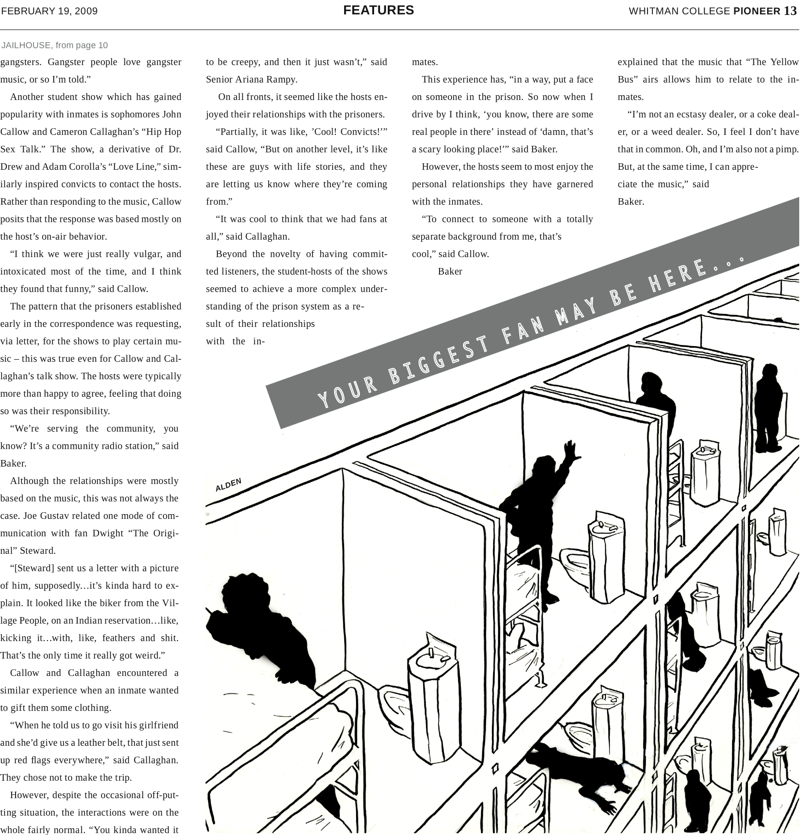
Featured Section - February 19th - Page 13
This article originally appeared as part of the Featured Section of the February 19th Print edition. To see how this section looked in print click the image thumbnails below.
“One could argue that the correctional officers are the most critical position at the penitentiary. They are the ones on the line with the inmates, maintaining control and security out there. There is a point beyond which you can’t cut the number of officers you have in a maximum security prison,” said Associate Professor of Sociology Keith Farrington.
With the changes that have occurred at the prison over the years, public sentiment about correctional officers has shifted. The tumultuous nature of the prison in the late 70s shifted the balance of power from the officers to the inmates. This led to disorganization within the prison establishment. However, despite low morale, high turnover and poor public opinion, most officers continued to regard their jobs as honorable, according to the Encyclopedia of American Prisons.
As a consequence of the disorganization in the 70s, the 80s saw a dramatic increase in the professionalization of officers in order to improve public opinion. Recent trends have also seen increases in salaries, raising prestige in the position.
Aseries of Union Bulletin articles titled “Behind the Badge,” written by Terry McConn, ran from Aug. 6-13, 2006 and discussed the controversial, but locally relevant profession of a correctional officer.
Correctional officers undergo a six-week training course, must have a specific set of skills and have certain level of maturity that will allow them to work with felons. Understandably, the job is not one in which everyone could succeed.
Each eight hour shift worked by a correctional officer requires constant attention in a job that would seem quite monotonous, but the officers learn how to make the most of it.
“Start every day new. What happened yesterday didn’t happen. Because if you take this job personally it will eat you up,” said correctional officer Roy Dodd, in this series.
As a result of the confinements of the job, officers do not get their recognition and support from the public, but rather learn to gain appreciation from their fellow officers.
